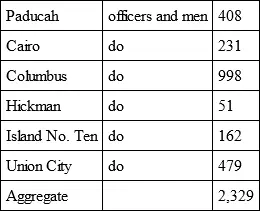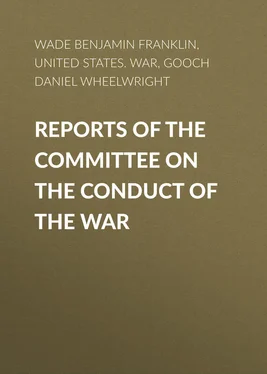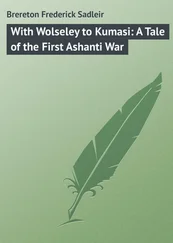Benjamin Wade - Reports of the Committee on the Conduct of the War
Здесь есть возможность читать онлайн «Benjamin Wade - Reports of the Committee on the Conduct of the War» — ознакомительный отрывок электронной книги совершенно бесплатно, а после прочтения отрывка купить полную версию. В некоторых случаях можно слушать аудио, скачать через торрент в формате fb2 и присутствует краткое содержание. Жанр: История, foreign_antique, foreign_prose, на английском языке. Описание произведения, (предисловие) а так же отзывы посетителей доступны на портале библиотеки ЛибКат.
- Название:Reports of the Committee on the Conduct of the War
- Автор:
- Жанр:
- Год:неизвестен
- ISBN:нет данных
- Рейтинг книги:3 / 5. Голосов: 1
-
Избранное:Добавить в избранное
- Отзывы:
-
Ваша оценка:
- 60
- 1
- 2
- 3
- 4
- 5
Reports of the Committee on the Conduct of the War: краткое содержание, описание и аннотация
Предлагаем к чтению аннотацию, описание, краткое содержание или предисловие (зависит от того, что написал сам автор книги «Reports of the Committee on the Conduct of the War»). Если вы не нашли необходимую информацию о книге — напишите в комментариях, мы постараемся отыскать её.
Reports of the Committee on the Conduct of the War — читать онлайн ознакомительный отрывок
Ниже представлен текст книги, разбитый по страницам. Система сохранения места последней прочитанной страницы, позволяет с удобством читать онлайн бесплатно книгу «Reports of the Committee on the Conduct of the War», без необходимости каждый раз заново искать на чём Вы остановились. Поставьте закладку, и сможете в любой момент перейти на страницу, на которой закончили чтение.
Интервал:
Закладка:
All of which is respectfully submitted.
B. F. WADE.
D. W. GOOCH.
Adopted by the committee as their report.
B. F. WADE, Chairman .
TESTIMONY
CAIRO, ILLINOIS, April 22, 1864 .
Brigadier General Mason Brayman sworn and examined by the chairman.
Question. What is your rank and position in the service?
Answer. Brigadier General of volunteers; have been in command of the district of Cairo since March 19, 1864.
Question. What was the extent of your district when you assumed command, and what your available force?
Answer. The river, from Paducah to Island No. Ten, inclusive, about 160 miles, and adjacent portions of Tennessee and Kentucky. My available force for duty, as appears from tri-monthly report of March 20, as follows:

Question. What was the character of your force and the condition of your command at that time?
Answer. Three-fourths of the men were colored, a portion of them not mustered into service, and commanded by officers temporarily assigned, awaiting commission. Of the white troops about one-half at the posts on the river were on duty as provost marshals' guards and similar detached duties, leaving but a small number in condition for movement. The fortifications were in an unfinished condition, that at Cairo rendered almost useless by long neglect. Many of the guns were dismounted, or otherwise unfit for service, and the supply of ammunition deficient and defective. A body of cavalry at Paducah were not mounted, and only part of those at Union City. I had not enough mounted men within my reach for orderlies.
Question. What is the character of the public property and interests intrusted to your care?
Answer. Paducah commands the Ohio. In hostile hands, the Tennessee and Cumberland rivers are no longer ours. Mound City, eight miles above Cairo, is the great naval depot for the western fleet. Gunboats there receive their armaments, crews, and supplies. An average of probably $5,000,000 of public property is constantly at that point; I found it guarded by, perhaps, fifty men of the veteran reserve corps, not referring to gunboats lying there. Cairo, at the confluence of the great rivers, is the narrow gateway through which all military and naval operations of the Mississippi valley must be made. I cannot compute the amount or value of shipping and property at all times at this point. The committee must observe that the loss of Mound City and Cairo would paralyze the western army and navy. The points below Columbus and Island Ten are fortified places; while holding them, the rebels had control of the river. It required a prodigious effort to dislodge them. To concede to them any point on the river, even for a week, would bring disaster. Furthermore, the rebels now control western Kentucky; they are murdering, robbing, and driving out the loyal men; they avow their determination to permit the loyal men to take no part in the approaching elections. Unless protected in their effort to protect themselves, the Union men must give way, and the country remain under insurrectionary control.
Question. Did you consider your force, as stated, adequate to the protection of your district?
Answer. Wholly inadequate, considering the interests at stake, and the hostile forces within attacking distance.
Question. When did you first hear that Forrest was advancing?
Answer. On March 23, four days after I took command, Colonel Hicks, at Paducah, and Colonel Hawkins at Union City, advised me by telegraph of the presence in their neighborhood of armed bands, both fearing an attack. At night of the same day, Colonel Hawkins reported Forrest at Jackson, 61 miles south, with 7,000 men; and again that he expected an attack within 24 hours. He wanted re-enforcements.
Question. Had you the means of re-enforcing him?
Answer. Of my own command, I had not 150 available men; however, some regiments and detachments of General Veatch's division had arrived and awaited the arrival of boats from St. Louis to carry them up the Tennessee. General Veatch had gone to Evansville, Indiana. Simultaneously with the reports from Hicks and Hawkins, I received from General Sherman, then at Nashville, this despatch: "Has General Veatch and command started up the Tennessee? If not, start them up at once." Down to this time it was uncertain whether Union City or Paducah was the real object of attack. Late in the evening I applied to Captain Fox, General Veatch's assistant adjutant general, to have 2,000 men in readiness to move during the night, if wanted, promising to have them back in time to embark, on arrival of their transports. I telegraphed Hawkins that he would receive aid, directing him to "fortify and keep well prepared." About 4-1/2 o'clock of the morning of the 24th, I was satisfied that Union City was the point of attack. Boats were impressed, four regiments were embarked, and I left at ten; disembarked at Columbus, and arriving within six miles of Union City at four p. m., where I learned that a surrender had taken place at 11 a. m., and the garrison marched off. I turned back, and at three the next morning turned over General Veatch's men, ready to go up the Tennessee.
Question. Why did you not pursue Forrest?
Answer. For three reasons: First , his force was all cavalry; mine all infantry. Second , he was moving on Paducah, and, while I could not overtake him by land, I could head him by the rivers. Third , another despatch from General Sherman reached me as I was going out from Columbus, prohibiting me from diverting the troops bound up the Tennessee from that movement on account of the presence of Forrest. My purpose was to save Union City, bring in its garrison, and have General Veatch's men back in time for their boats. While I was willing to risk much to secure a garrison supposed to be yet engaged in gallant defence, I could do nothing to mitigate the accomplished misfortune of a surrender.
Question. Do you think the surrender premature?
Answer. The garrison was within fortifications; the enemy had no artillery. A loss of one man killed and two or three wounded does not indicate a desperate case. The rebels were three times repulsed. A flag of truce followed, and a surrender.
Question. How large was the attacking party?
Answer. I judge fifteen hundred, the largest portion of Forrest's force being evidently on the way to Paducah.
Question. How large was his entire force?
Answer. Apparently 6,500.
Question. When was Paducah attacked?
Answer. About 3 p. m. the next day, March 25.
Question. Was Paducah re-enforced previous to the attack?
Answer. It was not. I had no men to send, but sent supplies.
Question. Where was General Veatch's command?
Answer. Embarking for the Tennessee.
Question. Was Paducah well defended?
Answer. Most gallantly, and with success. The conduct of Colonel Hicks and his entire command was noble in the highest degree.
Question. How did his colored troops behave?
Answer. As well as the rest. Colonel Hicks thus refers to them in his official report: "I have been one of those men who never had much confidence in colored troops fighting, but those doubts are now all removed, for they fought as bravely as any troops in the fort."
Question. Why was the city shelled and set on fire?
Answer. Our small force retired within the fort; the rebels took possession of the town, and from adjacent buildings their sharpshooters fired upon us. It was necessary to dislodge them. The gunboats Peosta, Captain Smith, and Paw Paw, Captain O'Neal, and the fort drove them out, necessarily destroying property. Most of the inhabitants being still rebel sympathizers, there was less than the usual regret in performing the duty.
Читать дальшеИнтервал:
Закладка:
Похожие книги на «Reports of the Committee on the Conduct of the War»
Представляем Вашему вниманию похожие книги на «Reports of the Committee on the Conduct of the War» списком для выбора. Мы отобрали схожую по названию и смыслу литературу в надежде предоставить читателям больше вариантов отыскать новые, интересные, ещё непрочитанные произведения.
Обсуждение, отзывы о книге «Reports of the Committee on the Conduct of the War» и просто собственные мнения читателей. Оставьте ваши комментарии, напишите, что Вы думаете о произведении, его смысле или главных героях. Укажите что конкретно понравилось, а что нет, и почему Вы так считаете.












